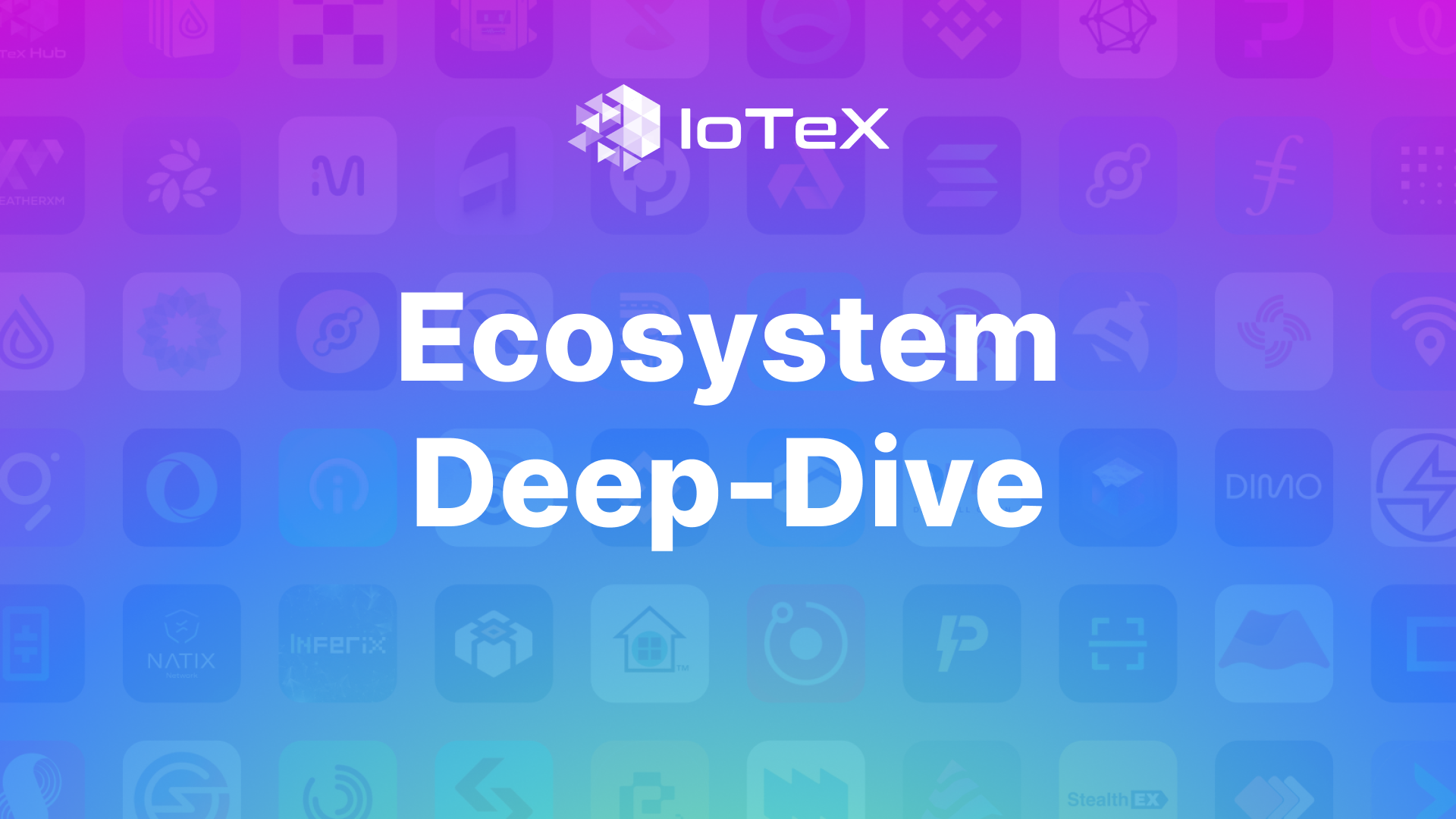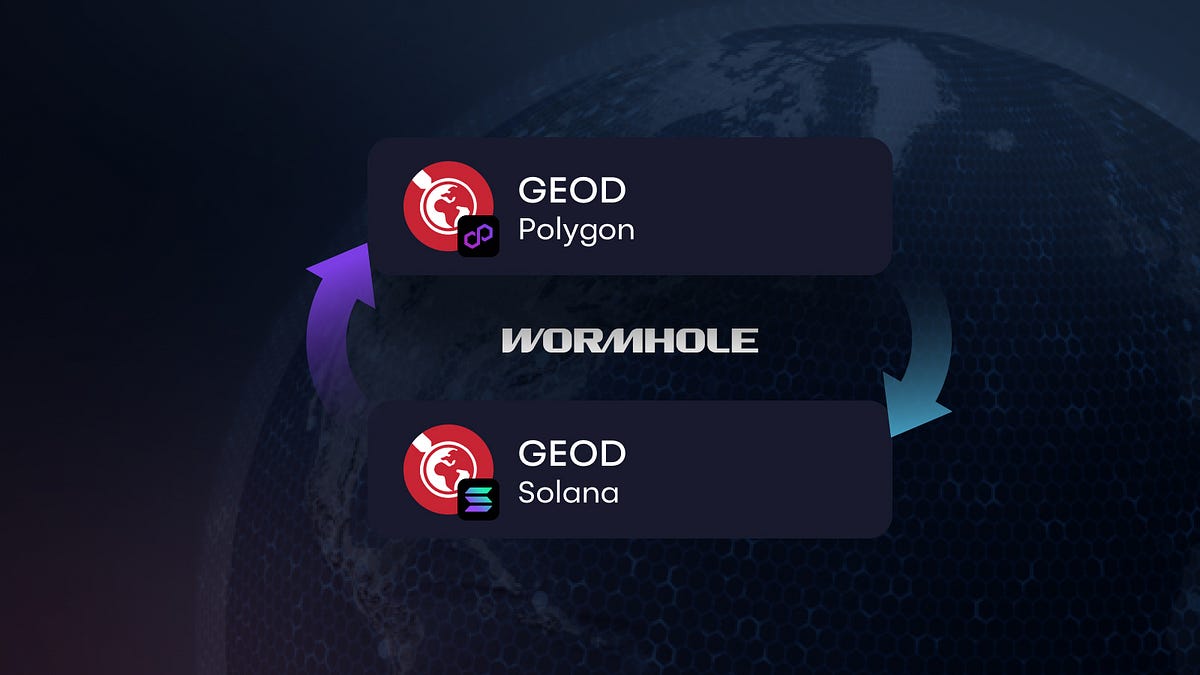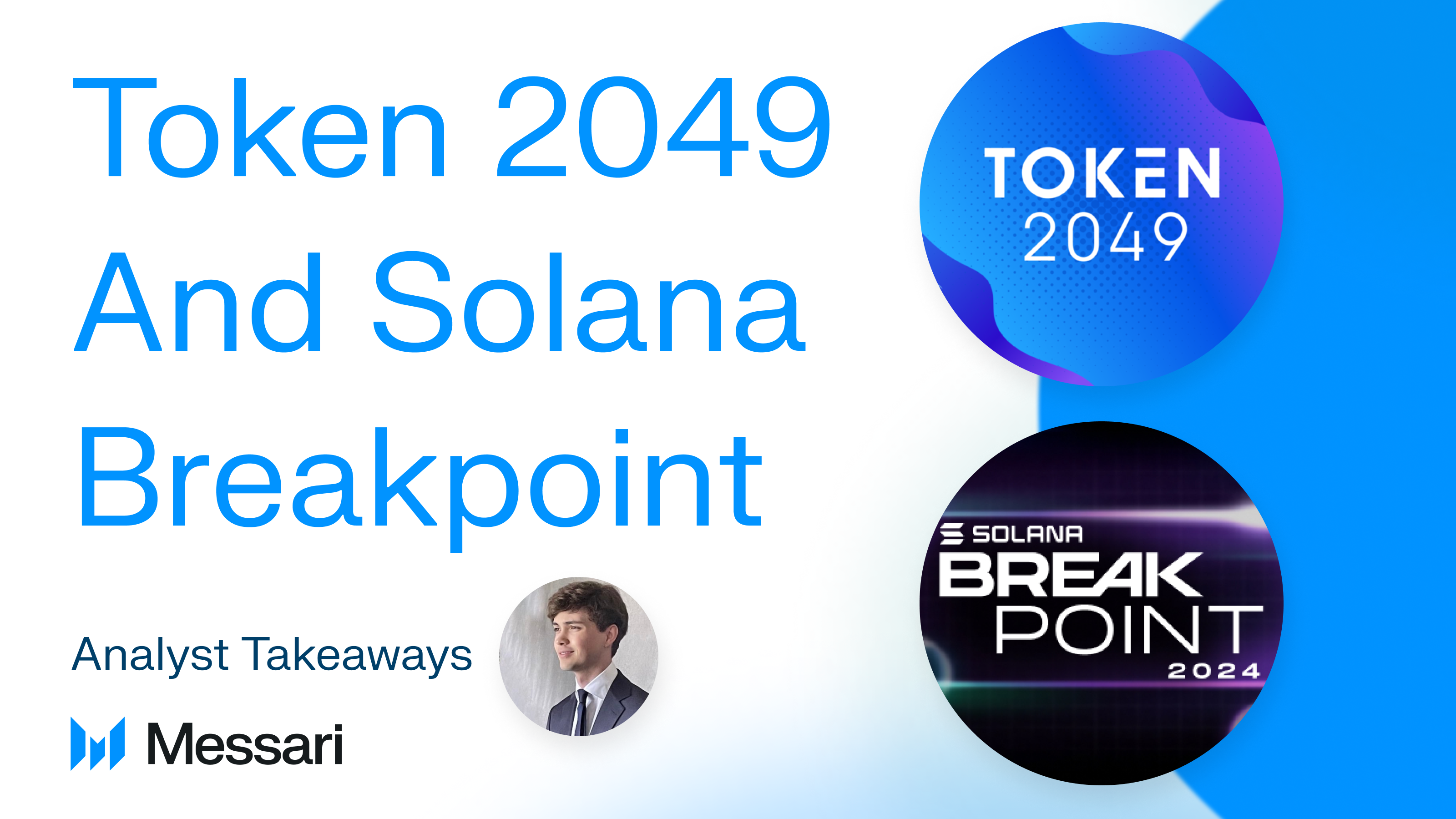Latest Solana News

a year ago
Solana's Innovations Overlooked in EVM-Biased Report
In a recent analysis of a16z's report on the "State of the Crypto Industry," Lily Liu, Chair of the Solana Foundation, highlights a notable EVM bias that overlooks Solana's impressive achievements in transaction fees, NFTs, and the DeFi market. Despite Solana leading in NFT addresses and transaction volume over the past year, the report fails to acknowledge significant innovations in decentralized physical infrastructure networks (DePIN), such as Helium and Hivemapper, which thrive within the Solana ecosystem. Liu argues that the report's binary framework, which positions EVM and non-EVM ecosystems as oppositional, misrepresents the true landscape of blockchain development and user engagement.
Liu emphasizes the importance of transaction fees as a more meaningful metric for assessing ecosystem activity and health, rather than relying solely on active addresses or Total Value Locked (TVL). Since introducing a fee market, Solana's transaction fee market share has surged from below 1.5% to consistently above 10%, peaking at 25% in July 2024. This shift indicates a growing economic value within the Solana ecosystem, narrowing the gap with Ethereum when considering Real Economic Value (REV). Furthermore, Liu critiques the report's gaming sector analysis, which fails to adequately include non-EVM networks like Solana, leading to incomplete comparisons that do not reflect the full blockchain gaming ecosystem.
Additionally, Liu points out that the report's focus on TVL for DeFi comparisons is insufficient, as it overlooks critical metrics such as transaction volume. While Solana's TVL is only 10% of Ethereum's, its monthly DEX transaction volume often exceeds that of Ethereum, highlighting its capital efficiency. Liu also notes that Solana's low transaction costs have driven significant consumer behavior changes, exemplified by the success of platforms like Drip Haus. The absence of DePIN innovations within the report raises questions about its comprehensiveness, as groundbreaking projects like Helium and Hivemapper are primarily developing within the Solana ecosystem, showcasing the real-world applications of decentralized networks.

a year ago
Ambient Deploys Blockchain-Based Air Quality Sensors in Los Angeles
Ambient, the largest distributed network for environmental monitoring, has announced the successful deployment of blockchain-based air quality monitoring sensors in Los Angeles’ Japanese Village Plaza (JVP). This initiative aims to enhance the environment and well-being of the area, which attracts over 5,000 visitors daily. According to Ambient's CEO, Luca Franchi, the project highlights the growing importance of air quality awareness among consumers and businesses, while also promoting incentive-based behavior to drive better insights and foster a healthier experience for all.
Historically, air quality monitoring has been a costly endeavor, primarily managed by government agencies and large corporations. The limited number of locations being tracked in Los Angeles underscores the need for more comprehensive monitoring solutions. With the World Health Organization reporting over seven million premature deaths globally due to air pollution, effective monitoring is essential to address health risks associated with poor air quality. The deployment at JVP not only improves the quality of life for its visitors but also serves as a model for broader applications in urban centers.
Ambient, in collaboration with Parami, is deploying Kaiterra Sensedge Mini sensors across 30 retailers in JVP, providing real-time data on temperature, humidity, particulate matter, and more. This innovative approach leverages blockchain technology to record data on the Solana Blockchain and offers token-based incentives for participants. By investing in Ambient tokens, participants can benefit from data sales and commercial activities derived from the network, driving meaningful change and innovation in environmental monitoring.

a year ago
Render Token's Remarkable Surge and Future Predictions
The Render Token (RENDER) has experienced a remarkable rise in 2023, surging over 1,000% following its migration to the Solana blockchain. This transition has opened new opportunities for the token, leading to increased listings and investor interest. As of October 18, 2024, RENDER was priced at $5.35. Despite some volatility in early 2024, analysts remain optimistic, with predictions suggesting that the token could reach $18 by 2025, driven by growing adoption and technological advancements in the decentralized computing space.
In terms of price predictions, analysts have outlined a range for RENDER's value in the coming years. For 2024, the minimum price is projected at $4, with an average of $7.50 and a maximum of $12, reflecting ongoing market corrections. By 2025, the price could stabilize at a minimum of $5.50, with potential growth leading to an average of $10 and a bullish scenario reaching $18. Looking further ahead to 2030, RENDER could see significant gains, with estimates suggesting a minimum price of $10 and a maximum of $50, contingent on broader market adoption and demand.
The Render Network facilitates GPU rendering by connecting creators with GPU providers, making it easier to produce graphics on the blockchain. RENDER serves as the transaction currency within this ecosystem, allowing users to pay for services and participate in governance. With a market cap of $2.77 billion, RENDER ranks as the 34th largest cryptocurrency. As the project continues to evolve and adapt, it remains essential for investors to conduct thorough research and consider market trends before making investment decisions.

a year ago
IoTeX Ecosystem Thrives with DePIN Growth and Upcoming Initiatives
The IoTeX ecosystem is experiencing unprecedented growth, particularly in the DePIN (Decentralized Physical Infrastructure Network) sector. With the launch of IoTeX 2.0, the platform has introduced a sophisticated tech stack that has attracted 218 projects, including 51 dedicated to DePIN. This surge in activity is underscored by the impressive DePINscan, which now tracks over 280 projects and 18 million devices. The upcoming Get GOATed Season 2 campaign promises to further energize the ecosystem with 100 million $IOTX incentives, marking a pivotal moment for IoTeX and its vision to become the leading DePIN ecosystem in the crypto space.
IoTeX is now recognized as the third-largest DePIN ecosystem, trailing only Ethereum and Solana. The platform's commitment to supporting its projects through initiatives like the DePIN Surf Accelerator and the IoTeX Ecosystem Fund has fostered significant advancements in the sector. Notable projects such as Network3, Nubila, and Wayru are making headlines with their innovative approaches and successful fundraising efforts. For instance, Network3 has raised $5.5 million and is set to launch its $N3 token soon, while Nubila has secured $2.5 million to enhance its environmental data collection capabilities.
Looking ahead, IoTeX is not only focused on nurturing its internal projects but is also expanding its influence across other Layer 1 networks. Recent integrations with platforms like Solana and Polygon are designed to enhance cross-chain liquidity and broaden the reach of DePIN capabilities. As the ecosystem gears up for major product launches, including ioID and W3bstream, the excitement surrounding IoTeX continues to build. With a robust roadmap ahead, IoTeX is poised to solidify its position as a key player in the DePIN landscape, driving innovation and collaboration across the crypto universe.

a year ago
AI-Driven Coins Surge as IntelMarkets Leads the Charge
The cryptocurrency market is currently witnessing a significant surge in AI-driven coins, with IntelMarkets (INTL) leading the charge in presale success. This emerging coin has attracted considerable attention, raising over $1.1 million at a presale price of just $0.027. Market analysts predict a potential price increase of up to 1,000% in the coming months, highlighting the growing interest in AI technologies within the crypto space. Alongside INTL, Near Protocol (NEAR) and Bittensor (TAO) are also experiencing impressive gains, with NEAR trading at $4.99 after a notable recovery from a low of $3.25. This trend suggests a shift in market dynamics, with AI coins poised to challenge established players like Cardano (ADA).
Cardano (ADA) is currently facing a downturn, struggling to maintain its value amidst a bullish market. The coin has seen a minor increase of only 3%, trading at $0.36, but has experienced significant fluctuations, dropping as low as $0.3434. The persistent red candles on the weekly charts indicate a bearish trend, with a monthly decline of 2%. As the market shifts towards AI-driven projects, Cardano's position may be threatened, prompting investors to reassess their strategies in light of these emerging competitors.
The IntelMarkets platform aims to revolutionize cryptocurrency trading by providing retail traders with advanced tools and features designed to simplify decision-making. Utilizing a dual architecture on Ethereum and Solana blockchains, IntelMarkets leverages over 100,000 inputs to generate a single trade signal, enhancing the trading experience. As the demand for efficient and cost-effective trading solutions grows, IntelMarkets is well-positioned to capitalize on this trend, potentially reshaping the landscape of cryptocurrency trading platforms.

a year ago
GEODNET Expands to Solana: A New Era for GEOD Token
GEOD, the native utility token of the GEODNET network, is making significant strides by going multichain to Solana through the Wormhole Native Token Transfer (NTT) framework. This transition was solidified by a governance vote that saw a 99% approval for the creation of the SPL token, as outlined in GEODNET Improvement Proposal #3 (GIP3). The GEOD token is integral to the network, rewarding Base Station hosts for mining satellite signal data and being utilized by customers through a purchase and burn mechanism. The Polygon-based GEOD token will remain active for satellite mining, while the new Solana token is expected to enhance the network's capabilities and reach.
The introduction of the Solana-based GEOD token is anticipated to provide numerous benefits for the GEODNET community, including enhanced service utility through the integration of multiple Solana DePIN protocols. This will facilitate essential services such as communication and mapping protocols, which are crucial for autonomy. Additionally, GEODNET is launching a Mobile SDK and applications, including the GEO-PULSE app, that will align with Solana's mobile initiatives. This move is seen as pivotal for fostering an open and decentralized mobile internet, countering the existing duopoly of the Android Play and Apple Store.
To facilitate the transition and increase liquidity, GEODNET has implemented an in-app bridge powered by Wormhole, allowing seamless token transfers between networks. Initial transfer limits are set to 100,000 GEOD tokens to manage risk while liquidity grows. Trading pairs for GEOD/SOL are already live on platforms like Orca and Raydium, with expectations for market-making support to enhance trading activity. The Foundation is also exploring broader multichain support, including the potential for satellite mining rewards on Solana, ensuring that the community remains informed about future developments and utility enhancements for the GEOD token.

a year ago
Coinbase to Support AI-Focused Altcoin io.net on Solana Network
Coinbase has announced that it will be adding support for the artificial intelligence-focused altcoin, io.net (IO), on the Solana (SOL) network. This addition marks a significant step for the decentralized physical infrastructure network (DePIN), which aims to leverage idle graphics processing units (GPUs) for machine learning (ML) and AI projects. According to Coinbase, trading for IO will commence on or after 9 a.m. Pacific Time on October 9th, 2024, contingent upon meeting liquidity conditions. The trading will be initiated in phases, and it is important to note that support for IO may be limited in certain jurisdictions.
At the time of writing, IO is trading at $1.77, reflecting a decline of over 3% in the past 24 hours. With a market capitalization of $168 million, io.net ranks as the 295th-largest cryptocurrency project. The project aims to democratize access to computing power by aggregating over one million GPUs from independent data centers, crypto miners, and other crypto projects like Filecoin and Render. This initiative is particularly timely given the increasing demand for GPU compute resources driven by the rapid growth of AI and ML workloads.
The io.net project emphasizes its mission to make computing more scalable, accessible, and efficient. Current major cloud providers possess approximately 10-15 exaFLOPS of GPU compute capacity. However, the anticipated demand for GPU compute in the cloud could surge to between 20-25 exaFLOPS, reflecting the escalating requirements for AI/ML model training and inferencing. As the cryptocurrency market continues to evolve, the integration of AI-focused projects like io.net could play a pivotal role in shaping the future of decentralized computing.

a year ago
Cutoshi Emerges as a Contender in the Growing Meme Coin Market
As Solana continues to benefit from low transaction fees and impressive scalability, tokens such as Bonk (BONK) and Arweave (AR) are experiencing notable growth. Bonk, a community-driven memecoin, has reached a market cap of $1.4 billion, currently priced at $0.0000205. Despite a recent 10% drop, Bonk has shown resilience with a staggering 9517% increase over the past year. Technical indicators suggest a neutral stance, with a rising Chaikin Money Flow (CMF) indicating potential capital inflow and investor confidence, even as the broader crypto market faces challenges.
Arweave (AR), which focuses on decentralized permanent data storage, boasts a market cap of nearly $1.2 billion. While it has seen a 2% drop today and a 25% decline over the past week, its yearly performance remains strong with a 347% surge. Current technical analysis shows neutral oscillators and a sell signal from moving averages, with the Relative Strength Index (RSI) at 38, suggesting it may be undervalued. The community's bullish sentiment could propel Arweave to new heights as demand for reliable data storage solutions grows.
Emerging on the scene is Cutoshi (CUTO), a utility-based meme coin that could potentially outshine both Bonk and Arweave. Currently in its presale stage, Cutoshi operates as a multi-chain decentralized exchange (DEX) with a unique tokenomics model designed to create scarcity and buying pressure. Analysts predict that Cutoshi could see significant growth following its Centralized Exchange (CEX) listing, with potential for a x100 increase in value. As the meme coin market expands, Cutoshi is well-positioned to capitalize on this trend, making it a noteworthy token to watch in the evolving blockchain landscape.

a year ago
Decentralized Physical Infrastructure Networks (DePINs)
Decentralized Physical Infrastructure Networks (DePINs)
DePINs have emerged as a critical part of the blockchain industry, disrupting traditional infrastructure models in data storage, computing power, and connectivity. The market cap for DePIN projects is estimated at $20 billion, attracting investments from top venture capital firms like Andreessen Horowitz and Binance Labs. Projects such as IoTeX and Akash Network are successfully onboarding contributors to their decentralized networks, with IoTeX having over 100,000 connected devices and Akash Network boasting more than 50,000 contributors for decentralized cloud computing.
The potential for DePIN to transform markets like the Internet of Things (IoT) is significant, especially with the IoT market projected to reach $500 billion. DePIN, short for 'decentralized physical infrastructure networks,' utilizes blockchain to maintain networks of physical hardware, offering solutions in various applications like sensors, wireless infrastructure, and energy grids. By incentivizing peer-to-peer hardware infrastructure through cryptocurrency tokenomics, DePIN projects are gaining traction in sectors like road mapping, telecommunications, and data storage.

a year ago
Analyst Takeaways on Token 2049 and Solana Breakpoint
At the recent Token 2049 and Solana Breakpoint conferences, analysts noted the dominance of both AI and DePIN as the most promising use cases for blockchain technology. These conferences delved into the exploration of promising protocols and rising trends within these sectors.
Furthermore, the surprise of continued institutional adoption of Solana was a key point of discussion. This unexpected trend showcases the growing interest and trust from traditional financial institutions towards Solana's blockchain ecosystem.
Signup for latest DePIN news and updates